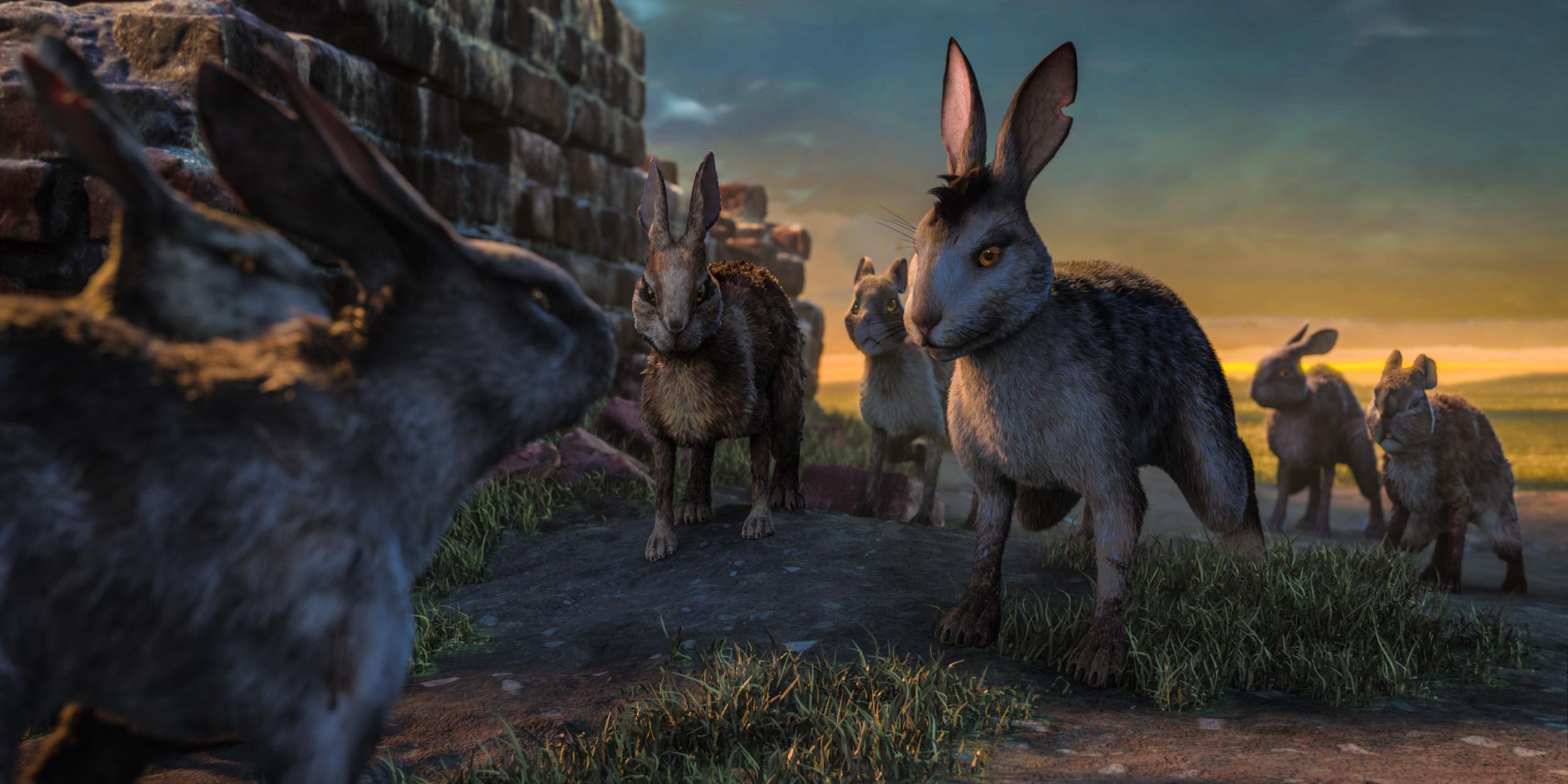Watership Down review: BBC and Netflix adaptation of traumatising children’s tale simply isn’t scary enough
Despite an all-star cast, this adaptation of Richard Adams’s classic is less tooth and claw than shrug and head-shake

Your support helps us to tell the story
From reproductive rights to climate change to Big Tech, The Independent is on the ground when the story is developing. Whether it's investigating the financials of Elon Musk's pro-Trump PAC or producing our latest documentary, 'The A Word', which shines a light on the American women fighting for reproductive rights, we know how important it is to parse out the facts from the messaging.
At such a critical moment in US history, we need reporters on the ground. Your donation allows us to keep sending journalists to speak to both sides of the story.
The Independent is trusted by Americans across the entire political spectrum. And unlike many other quality news outlets, we choose not to lock Americans out of our reporting and analysis with paywalls. We believe quality journalism should be available to everyone, paid for by those who can afford it.
Your support makes all the difference.You can’t swing a rabbit for all the reboots and remakes popping up at the moment. So it was inevitable Richard Adams’s classic and infamously traumatising children’s novel about warring bunnies should be the latest childhood touchstone reimagined for a modern generation.
Alas, and despite a glittering cast, the new Watership Down is spectacularly ho-hum – less tooth and claw than shrug and head-shake. The biggest issue with the four-part BBC-Netflix collaboration is that nobody involved seems to have paused to consider if, commercial imperative aside, there was a good reason for remaking Watership Down – already more than adequately served by Martin Rosen’s haunting 1978 movie.
So while the performances by James McAvoy, John Boyega, Gemma Arterton, Olivia Colman, Peter Capaldi and others, are top rank, what’s lacking is a willingness to wrestle with the themes explored in the novel – in particular Adams’s pessimistic view of animal (and by implication human) nature.
Because that’s the real problem with the new Watership Down: it simply isn’t scary enough. Which is a surprise considering director Noam Murro’s credits include 300: Rise of an Empire, proving he has no issue with screaming innocents being hacked and sliced to death.
Does the blame lie with Netflix? Where Rosen’s film was cobbled together on a shoe-string outside the studio system, this new version is very much a product for mass dissemination – and, thus by necessity, lacks the visceral knife-twisting of the earlier movie.

It isn’t an utter disaster. Watership Down works best when abandoning any pretence of faithfulness to Adams and striking off for pastures of its own. Somehow, it does this while following the original story more or less beat for beat. We start in a seemingly bucolic corner of England, where psychic rabbit Fiver (Nicholas Hoult) is in the process of convincing his more sensible brother Hazel (McAvoy) to flee their peaceful warren and thus escape an imminent cataclysm.
They are joined by captain Bigwig (Boyega) and a hodgepodge of furry friends, including a chatterbox bunny voiced by Get Out’s Daniel Kaluuya. What follows is a rough-and-tumble road movie. The interlopers encounter the zombified rabbit Cowslip and his fellow brain-washed bunnies, have a run-in with feral crows and meet a cranky seagull (Capaldi having the best time).
It’s breezy and fast-paced and, no matter how hairy the predicament in which the rabbits find themselves, entirely without menace. Even big baddie General Woundwort (Ben Kingsley) is comparatively cuddly – closer to a traditional Disney villain such as Scar from The Lion King than an milky-eyed avatar of evil to stalk your nightmares.
One glaring misstep is the cheap-looking CGI animation. Neither as realistic as Disney or Pixar – or even Netflix’s own recent Jungle Book remake Mowgli: Legend of the Jungle – nor as spare and elegant as the 1978 film, the new Watership Down is drab with a vengeance. At moments – nighttime scenes especially – it is a full-blown evolutionary throwback, resembling a Playstation 2 cut-scene circa 1999. Which is extraordinary considering the rumoured £20 million budget.

Watch Apple TV+ free for 7 days
New subscribers only. £8.99/mo. after free trial. Plan auto-renews until cancelled

Watch Apple TV+ free for 7 days
New subscribers only. £8.99/mo. after free trial. Plan auto-renews until cancelled
Nobody is suggesting the BBC should explicitly set out to unsettle unsuspecting viewers and no doubt there would be an outcry if Watership Down arrived slathered in buckets of blood. But without the darkness is Watership Down really Watership Down? And if you take away that malice and melancholy, what’s left? It’s a question the new adaptation never gets around to answering.
Join our commenting forum
Join thought-provoking conversations, follow other Independent readers and see their replies
Comments